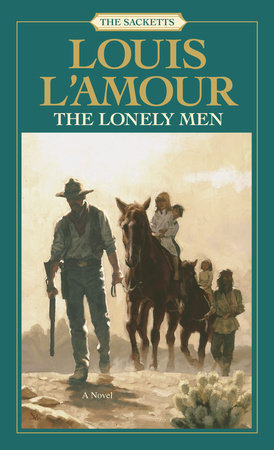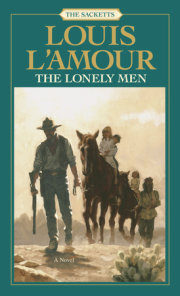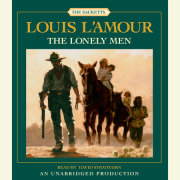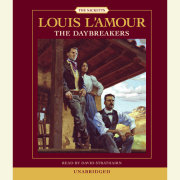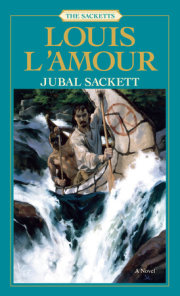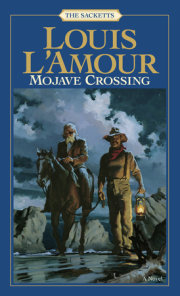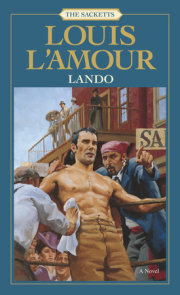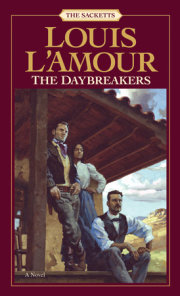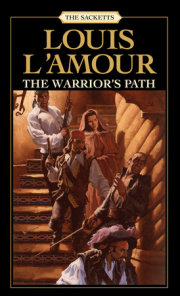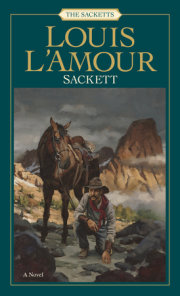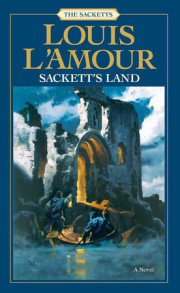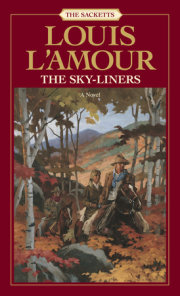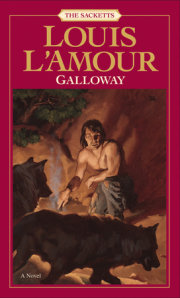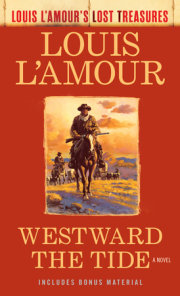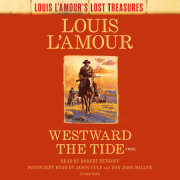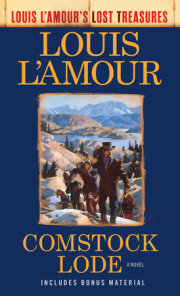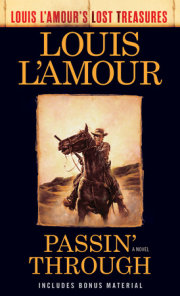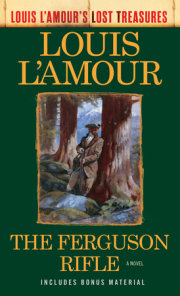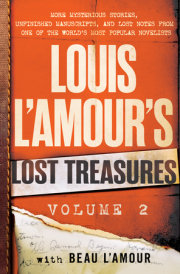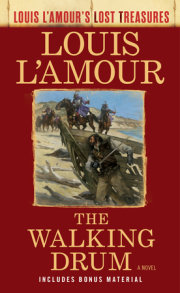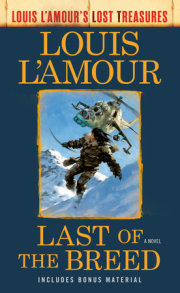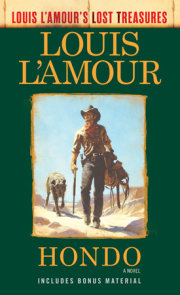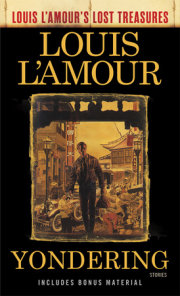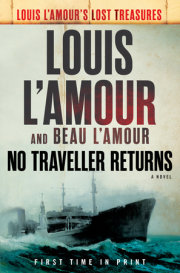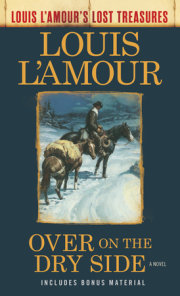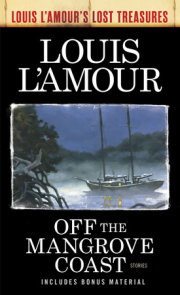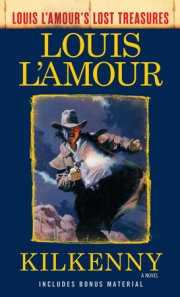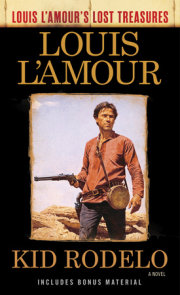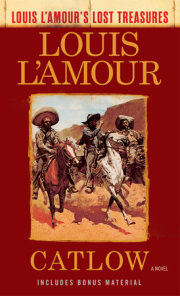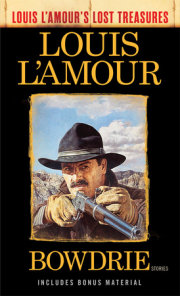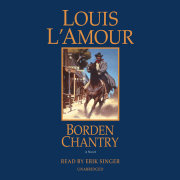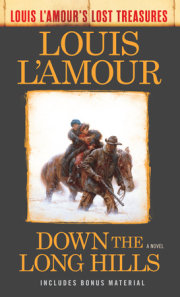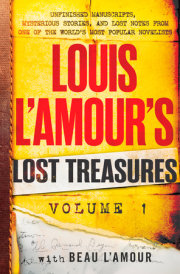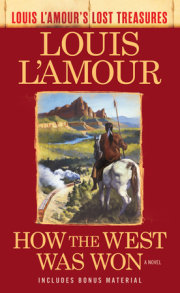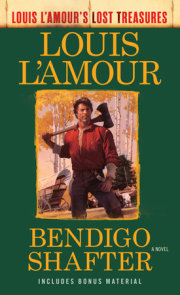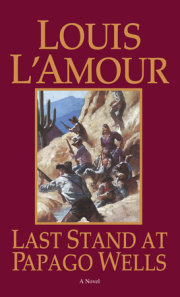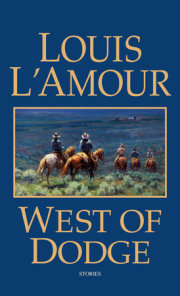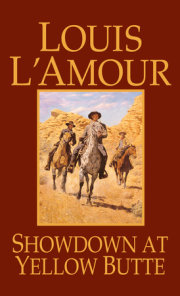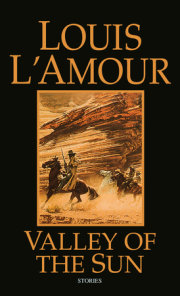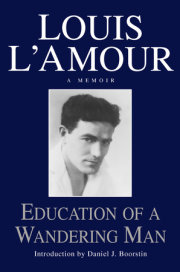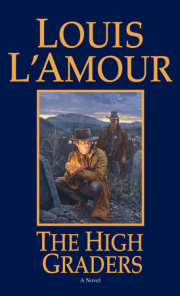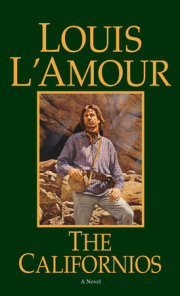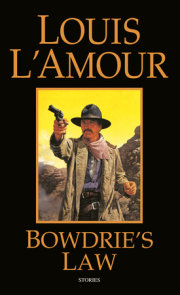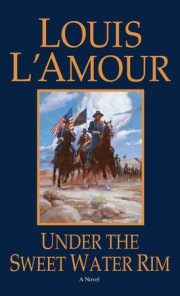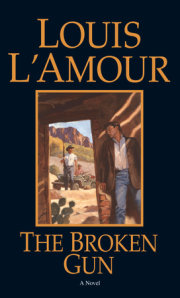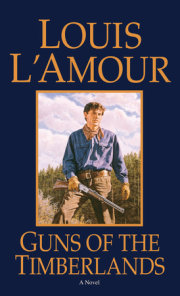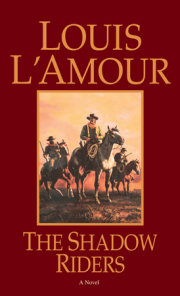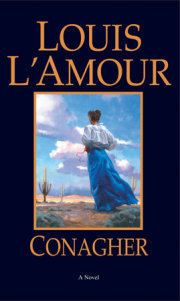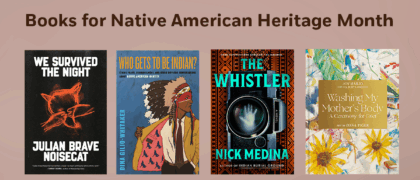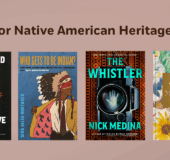Chapter 1
It was hot. The shallow place where I lay atop the desert ridge was like an oven, the rocks like burning coals. Out on the flat below, where the Apaches waited, the heat waves shimmered and danced. Only the far-off mountains looked cool.
When I tried to push out my tongue to touch my cracked lips it was like a dry stick in my mouth, and the dark splashes on the rock were blood … my blood.
The round thing lying yonder with a bullet hole in it was my canteen, but there might be a smidgen of water left in the bottom—enough to keep me alive if I could get to it.
Down on the flat lay my sorrel horse, who had run himself to death trying to save my hide, and him with a bullet hole in his belly. In the saddlebags were the few odds and ends that were likely to be as much as I’d ever have of possessions in this life, for I didn’t seem to be a fortunate man when it came to getting the riches of the world.
Back in the high-up Tennessee hills they used to tell it that when fighting time came around a body should stand clear of us Sacketts, but those Apaches down yonder had never heard the stories, and wouldn’t have paid them no mind if they had.
If you saw an Apache on a parade ground he might not stack up too much, but out in the brush and rocks of his native country, he was a first-class fighting man, and maybe the greatest guerrilla fighter the world ever saw.
Squinting my eyes against the glare and the thin trickle of salty sweat in my eyes, I clutched the stock of my rifle right back of the action and searched the terrain for something at which to shoot. My mouth was dry, my fingers stiff, and my rifle action so hot I daren’t touch it unless to shoot, and quick.
Down there on the trail Billy Higgins lay gut-shot and dead, killed at the last by my own bullet to save him from torture.
We’d been riding east in the cool of the morning when those Apaches hit us from out of nowhere. Rightly, this wasn’t even Apache country. This was Pima or Papago country, and they were Indians who were friendly to us, and who fought the Apaches on every occasion.
When those ’Paches hit us it was every man for himself, and Billy Higgins and me, we taken out a-running, heading for the rocks where we could make a fight of it.
An Apache with a .56 Spencer r’ared up from behind a greasewood and shot Billy right through the belly, opening him up as if it had been done with a saber. It meant he was dying, and he knew it.
Swinging my horse, I came back to him where he had fallen, but he looked up cool as could be and said, “You light out, Tell. I’ve seen some gut-shot folks in my time, but nobody had it worse than me.”
The shock of the bullet was still on him, but in a minute or two he would begin to suffer.
When I got down to lift him up he stopped me. “Before God, Tell, if you try to pick me up everything I’ve got in me will spill out. You hit the trail, but try to get another one for me, will you? You can he’p more up in the rocks, keepin’ them off me.”
What he said was gospel true and we both knew it, so I swung my horse and lit a shuck for those rocks as if my sorrel’s tail was afire. Only we didn’t get far. I heard the shots and felt the sorrel’s hoofs break rhythm, and then he started to cave under me, but somehow he fought himself up and kept on for fifty yards more. Then he started to go and I hit the ground running before he was down, with bullets kicking gravel ahead of and around me.
Almost at the top of the ridge a bullet caught me, and it saved my life.
It spun me, knocked me rolling butt over teakettle into the rocks, with two more bullets hitting right where I’d been. Scrambling up, I dove over into that shallow place and lay there, rifle in hand, hugging the ground. When the first Apache showed, I nailed him right between the eyes.
After that things quieted down, but there was no way to get clear. The ground around me hadn’t anything in the way of cover, so I had to stay where I was … with the morning ebbing away into noontime.
I’d no idea how many Apaches were out there. As they lived off the desert they never traveled in big bunches; there were rarely as many as thirty, more often twelve to eighteen, so far as I’d seen or heard.
Off to the northwest I could hear shooting, time to time, so some of the others must be alive, after all. There’d been five of us, to start, and all strangers who met in Yuma. That was the way it was in those days. More often than not a man might find himself traveling with folks he’d never seen before. None of the five of us had any knowledge of the others before we hit the trail. Traveling alone was a mighty chancy thing in Indian country, so it was lucky that we all shaped up to go east at the same time.
Now Billy was down, but I’d nailed an Apache. Right at the moment my chances didn’t look good. If they were settin’ a place for me in Tucson they’d best wait, for it began to look like there’d be an empty spot at the table.
I hunkered down a mite and piled a few rocks on the edge of the hollow to give me some more protection, leaving a place here and there to look through or fire through. I took time to replace the shells I’d fired … no idea when the chance would come again.
Apaches are great waiters. They could set for hours on end, just waiting a wrong move. A white man, he gets restless, wants to move, and the first thing you know he does, and he dies.
Not me. I grew up in Cherokee country in Tennessee, and my pa had been a mountain man who’d fought Indians from boyhood … he’d taught us when he was home, taught us all he could, and I learned from the Indians, too.
This shallow place in which I lay was scarcely three feet deep. It was maybe eight feet each way, and the lowest part was where the run-off water had started a trench that emptied into a draw in back of me.
The sky was a hot yellow, the land pinkish, with out-croppings of dull red or black. There was mighty little growth—just scraggly desert shrubs and prickly pear, and mighty little of that.
The time inched by, with no change in the heat, no change in the sun, no change in the country around. Unless I lifted my head, nothing could be seen and I must trust to my hearing.
On the slope, there was nothing. My horse lay down there, and the body of Billy Higgins.
I hadn’t been there long when I heard Billy scream. Taking a chance, I peeked out.
The Apaches were shooting flaming slivers of pitch pine into him with their bows. They were hidden down close to him, and there was no way I could get at them, nor them at me. They were shooting into Billy to torture him, which amused them, but also they were doing it to draw me out.
Three fires were smoldering in him before he screamed. And then he yelled to me: “Tell! For God’s sake, Tell! Shoot me!”
He lay out on the white sand in the glare of the awful sun, ripped open by a bullet, and the Apaches kept shooting those little arrows of flaming pitch pine into him.
“Tell!”
There was terrible agony in his voice, and a pleading, too.
All of a sudden, he forced himsef up and he put a finger against his skull. “Tell! Right there! For God’s sake, Tell!”
So I shot him. He would have done it for me.
You should have heard those Apaches yell. I’d spoiled their fun, and they were mad, real mad.
One of them jumped up, running at me, but just as I was about to shoot he dropped from sight; then another started and another, both disappearing before I could bring my rifle to bear, but each one a few yards closer.
Times like that, a body does some thinking, and right then I was a-wishing I was somewhere else, a-wishing I’d never come to Arizona a-tall, although until then I’d been mighty proud of the Territory, and even though hard times had come upon me I liked the country. Right now all I wanted was a way out … any way out. But those Apaches had a mind to keep me there.
Copyright © 2003 by Louis L'Amour. All rights reserved. No part of this excerpt may be reproduced or reprinted without permission in writing from the publisher.

